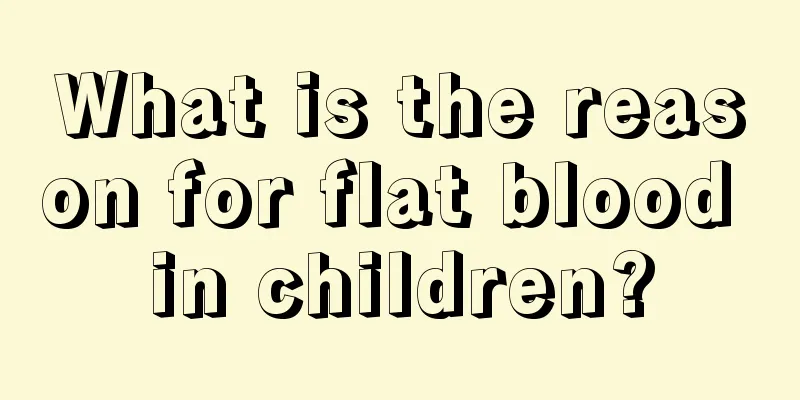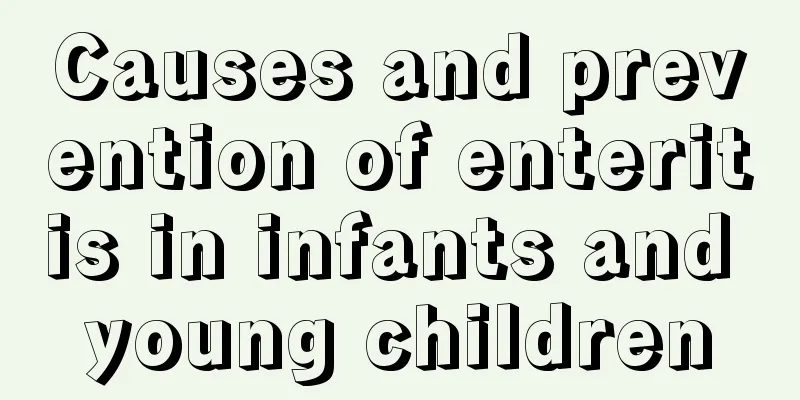Why do babies eat?

|
If the baby vomits as soon as he eats, the situation is quite serious, because it is likely caused by food poisoning, allergies or gastrointestinal problems. Therefore, in order to better ensure the health of the baby, parents should pay attention to this situation when they find it. If they cannot determine the cause, they should take the baby to the hospital for examination in time, so as to minimize the impact of this problem on the baby. Causes of vomiting in children include: 1. Organic obstruction of the digestive tract: Infants mostly suffer from congenital digestive tract malformations (stenosis or atresia in different parts), while older children mostly suffer from acquired intestinal torsion, intussusception, and obstruction. It is often accompanied by other obstructive symptoms: abdominal distension, bloody stools, no bowel movements, etc. 2. Infectious diseases of the digestive system: gastritis, peptic ulcer, enteritis, appendicitis, peritonitis, cholecystitis, cholelithiasis, pancreatitis, etc. It is often accompanied by abdominal pain, nausea, diarrhea, and bloating. 3. Digestive tract dysfunction: various systemic diseases and metabolic abnormalities. It is often accompanied by fever, nausea, abdominal distension, etc. 4. Neurological diseases: Intracranial hypertension due to various reasons (encephalitis, meningitis, intracranial space-occupying lesions) causes central vomiting, projectile vomiting without nausea, but with other neurological symptoms and signs (headache, drowsiness, coma, convulsions). 5. Abnormal cerebellar or vestibular function: changes with body position, accompanied by ataxia, dizziness, unstable gait, etc. 6. Poisoning: Poisoning by poison or food may manifest as vomiting with an acute onset. 7. Recurrent vomiting: also known as cyclical vomiting, often occurs in the preschool and school age (3-10 years old). Sudden and recurring vomiting can cause water and electrolyte disorders. The disease may have a family history. Overeating, fatigue, mental stress and mood swings are the triggers of the disease. Physical examination and auxiliary examinations of the digestive system and nervous system were unremarkable. Epileptic waveforms are occasionally seen on the electroencephalogram, but antiepileptic drugs are ineffective. It usually stops naturally after puberty. The above is an analysis of why babies vomit after eating. Parents can check whether the baby’s vomiting is caused by the above reasons. Only by understanding the reasons can they prevent and solve them in a targeted manner, allowing the baby to eat safely and healthily, and better absorb the nutrients in food, so that they can thrive. |
<<: What is the reason for baby vomiting after eating?
>>: What are the signs that your baby is not full?
Recommend
One and a half year old baby has nosebleed
Since a one and a half year old baby is still ver...
What to do if baby's labia adhesions
Infant labia adhesion is a common disease in our ...
Why does my baby have a fever and hot hands and feet?
If the baby has a fever, parents must be very cau...
What should children pay attention to when filling their teeth
Children's teeth are relatively fragile, and ...
What to do if your baby coughs
Coughing is very common. It is easy to cause coug...
The reasons and related introduction of newborns blowing bubbles from their mouths
What is going on when a newborn baby spits bubble...
Why is my child's hair turning yellow?
Many people think that since they are Chinese, th...
What should I do if my one-month-old baby has not defecated for three days?
The baby's health is a matter of great concer...
What medicine should children use for prickly heat?
Children's metabolism is much faster than tha...
What bacteria cause blood infection in newborns?
In the hospital, you always see a family carrying...
Why do newborns cry at night?
Although it is normal for newborns to cry, many c...
What to do if your one-year-old baby has a white tongue coating
The color of the tongue coating has a great relat...
What should I do if my child is anxious about going to kindergarten?
Most parents will encounter a big problem, that i...
Why does my child urinate less and yellower?
Many mothers will find that some babies urinate v...
What medicine should children take for laryngitis
Children's pharyngitis mostly occurs in child...









